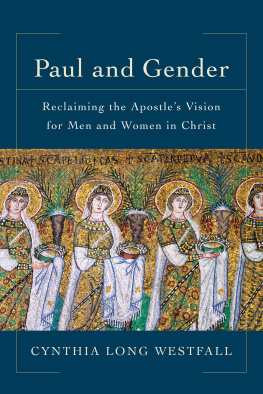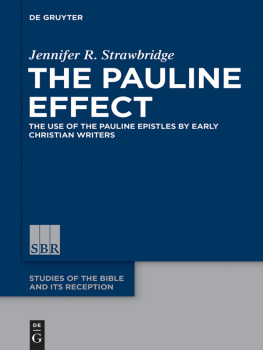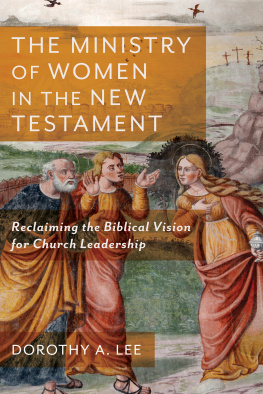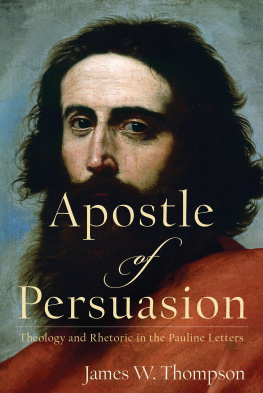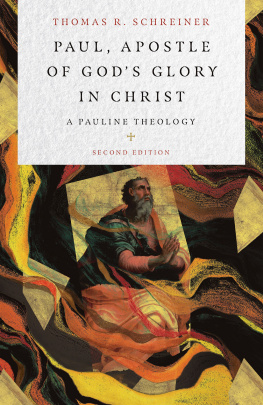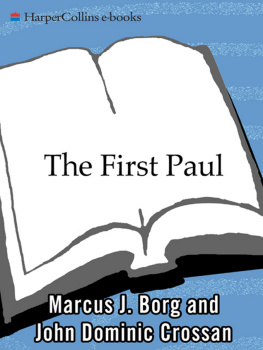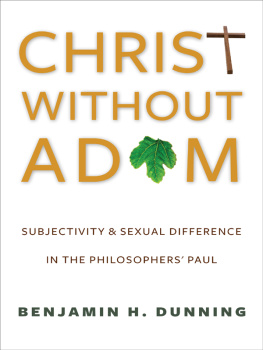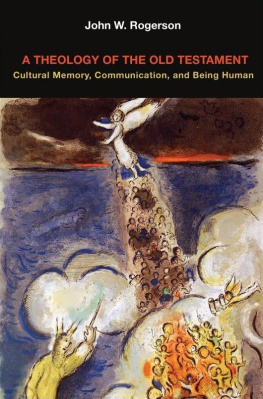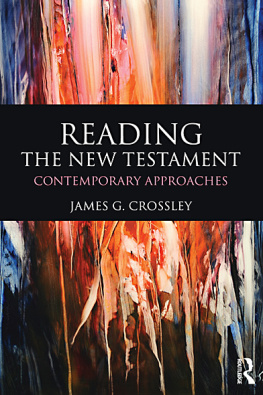May you find a reason to believe.
Contents
Cover
Title Page
Copyright Page
Dedication
Preface
Abbreviations
Introduction
1. Culture
1.1 Pauls Hellenism and Palestinian Judaism
1.2 The Pauline Relationship with the Church and Greco-Roman Society
1.3 Contrast between Rhetoric and Practice in the First Century
1.4 Gender and Greco-Roman Values
1.5 Gender and Public and Domestic Spheres
1.6 First Corinthians 11 and the Head Covering
2. Stereotypes
2.1 Male Metaphors Applied to All Believers
2.2 Feminine Metaphors Applied to All Believers
2.3 Feminine Metaphors Applied to Men
3. Creation
3.1 Gender and the Image of God
3.2 The Glory of God and the Glory of Man
3.3 The Purposes and Destiny for Gender in Creation
3.4 Gender and the Order of Creation
3.5 Creation and Headship
3.6 Woman Created for Man
4.1 Gender and Deception
4.2 Gender and the Origin of Sin and Death
4.3 A Woman Is Saved through Childbirth
5. Eschatology
5.1 Pauline Eschatology and Transcendent Norms
5.2 Eschatology and Creation
5.3 Eschatology, Resurrection, and the Representation of Christ
5.4 Eschatology and the Destiny of Humanity
5.5 Eschatology and Life in the Christian Community
5.6 Eschatology and the Household
5.7 Eschatology and Galatians 3:28
5.8 Is There a Problem with Overrealized Eschatology?
6. The Body
6.1 Gender, the Flesh, and the Body in Paul
6.2 The Body as Male/Female
6.3 Sexuality
6.4 Marriage and Singleness
6.5 Sex and Children
6.6 Separation, Divorce, and Remarriage
6.7 Sexual Immorality (Rom. 1:2627; 1 Cor. 6:1219)
7. Calling
7.1 Gender, Call, Service, and the Priesthood of the Believer
7.2 The Relationship between Marriage and Calling
7.3 Women in Service or in Silence?
8. Authority
8.1 Gender, Authority, Power, and Status in the Greco-Roman Culture
8.2 Pauls Theology of Authority, Power, and Status
8.3 Men and Authority
8.4 Women and Authority
9. 1 Timothy 2:1115
9.1 Broad Exegetical Choices
9.2 The Purpose of the Letter
9.3 Antidotes to False Teaching (2:115)
Select Bibliography
Index of Greek Terms
Index of Modern Authors
Index of Ancient Sources
Index of Subjects
Back Cover
Preface
This book is an attempt to explain the Pauline passages that concern gender and to move toward a canon-based Pauline theology of gender. The passages concerning gender that are in the Pauline canon will be taken into account and interpreted according to the texts terms and claimsthat is, biblical texts that claim to be written by Paul demand that they should interpret, and be interpreted by, the other writings that claim to be by Paul. These texts also place themselves within certain contexts, including the narrative of Pauls life, so that they may be read in those contexts. There are five priorities that guide the interpretation and canonical theology:
- The results will attempt to be faithful to the texts and contexts in the Pauline corpus.
- The interpretations will seek to be intelligible within a reconstruction of the narrative of Pauls life.
- The specific interpretations will attempt to be understandable within the context of language, culture, and situation in which the texts place themselves.
- The interpretations will strive to be coherent within the general context of Pauline theology if possible, given the text, context, language, and culture.
- Contemporary theological constructs and applications should strive to be consistent and coherent with an interpreters contemporary (biblical) worldview.
While it is acknowledged that dissonance, incoherence, inconsistency, and changes in thought are possible within any writer or speakers collected work (contested or uncontested), if there is a coherent and relevant interpretive choice available that effectively lies within these five guidelines, that choice is preferable. In the case of the Pauline corpus, coherence and consistency with Pauls teaching and other apostolic teaching were transparent criteria for selection and inclusion in the canon.
Most studies that claim to be about Paul and gender or about gender and the Bible are really about the role of women in the church, home, and society. While womens issues are of central interest and clearly render this study timely and relevant, I take the position that the Pauline passages on women cannot be adequately understood or applied apart from a corresponding understanding of the Pauline passages on men. Furthermore (as stated above), passages on men and women must be understood and coherent within Pauline theology as a whole, and particularly in the passages and letters in which the texts are embedded. Finally, as I contend in this study, the Pauline texts address mens issues in the church, home, and society that are also of grave importance and relevance.
I wrote this book for four reasons. First, gender issues were important for Paul, and they continue to be important in the life of faith and the academy, particularly within the context of Western culture in the twenty-first century. Diligent work on a biblical and a systematic theology of gender needs to continue as a priority in the academy. Applications in denominations, local churches, and the home need to be placed under an informed biblical scrutiny and accountability. This discussion should not be cut short or settled by authoritative statements, political strategies, or the popular influence of conferences, charismatic speakers, or internet blogging. We have barely begun to scratch the surface of issues that concern humanity as male and female, issues that may well be as complex as the theology of the Trinity or the theology of the relationship between the human and divine in the person of Christ. Its complexity demands commensurate effort.

